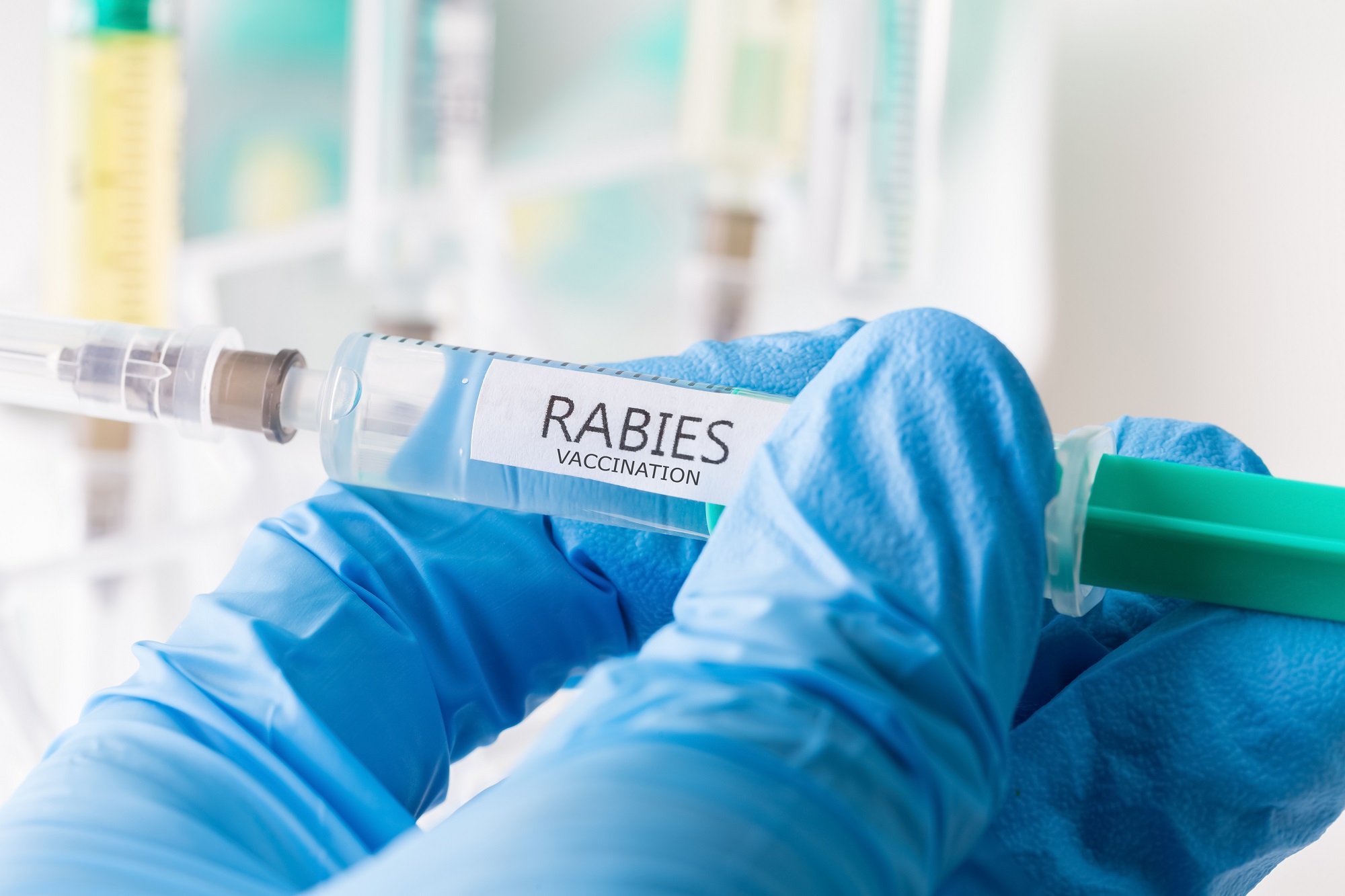Rabies is a viral illness spread via the saliva of an infected animal by the rabies virus (genus Lyssavirus). Rabies exposure occurs usually through biting a human or another infected animal. Transmission can also occur through saliva touching an open wound or touching mucous membranes.
Rabies is a vaccine-preventable, zoonotic, viral disease. Once clinical symptoms appear, rabies is virtually 100% fatal. In up to 99% of cases, domestic dogs are responsible for rabies virus transmission to humans. Yet, rabies can affect both domestic and wild animals. It is spread to people and animals through bites or scratches, usually via saliva.
Rabies is present on all continents, except Antarctica, with over 95% of human deaths occurring in Asia and Africa regions. Rabies is one of the Neglected Tropical Diseases (NTD) that predominantly affects poor and vulnerable populations who live in remote rural locations.
Rabies Vaccination
Every year, more than 29 million people worldwide receive a post-bite vaccination. This is estimated to prevent hundreds of thousands of rabies deaths annually. Globally, the economic burden of dog-mediated rabies is estimated at US$ 8.6 billion per year.
Vaccinating dogs is the most cost-effective strategy for preventing rabies in people. Dog and other pets vaccination reduces deaths attributable to animal-mediated rabies and the need for PEP as a part of dog bite patient care.
Core vaccines are required for all dogs and puppies and protect against parvo virus, distemper virus, adenovirus and hepatitis. A core combination vaccine should be given at 8, 10 and 12 weeks of age, and then repeated annually. Some veterinarians may switch to an every three-year vaccination schedule after a dog reaches two years of age.
Considered a core vaccine, rabies vaccines for dogs are required by law in many countries including the U.S. All dogs should be vaccinated for rabies at approximately 14 weeks of age, and then again at one year of age. Depending on your local regulations, re-vaccination should happen every one to three years.
What to do After accidental double dose of rabies vaccine
Sometimes, healthcare personnel inadvertently administer the wrong dose of a vaccine to a child or adult patient. This often happens with vaccines that come in both pediatric and adult formulations. In the event of an accidental double dose of rabies vaccine, the parties should note that the dose counts as valid. Although it is unlikely that the patient will suffer any untoward side effects from receiving a “double dose” of vaccine, using larger-than-recommended dosages can result in excessive local or systemic concentrations of antigens or other vaccine constituents.
When errors of this nature occur, it is important to assess how the error happened and to implement strategies to ensure they will not be repeated. Administering larger-than-recommended doses of any vaccine does not negate the need for subsequent recommended doses.
Accidental double dose of rabies vaccine in animals especially dogs also occurs in veterinary practice, while there may be no adverse effects right away, the dogs may suffer from allergic reactions, autoimmune diseases, behavioral changes but rarely, death.
Studies show that young adult small-breed dogs with multiple vaccines per vet visit were at greatest risk of vaccine reaction within three days of vaccination. However, this isn’t the case for multivalent vaccines, which include vaccines for parvovirus, parainfluenza, or bordetella for kennel cough. While allergic reactions may disappear in a day or two, some cases result in more severe problems. SEE: The Most Dangerous Dog Breed According to Science






